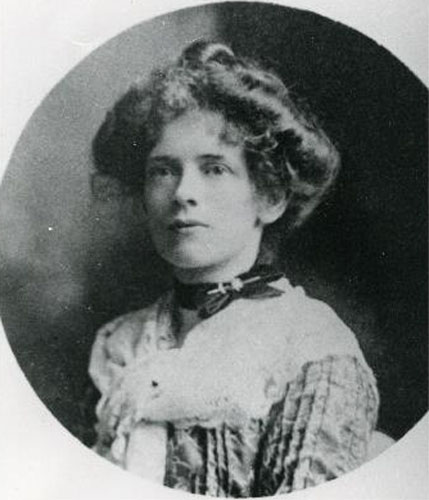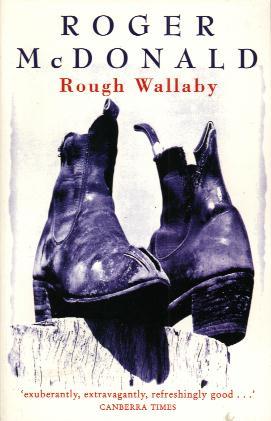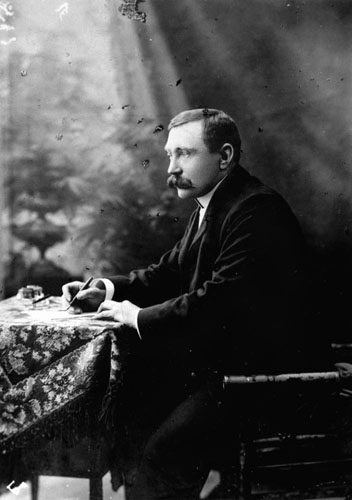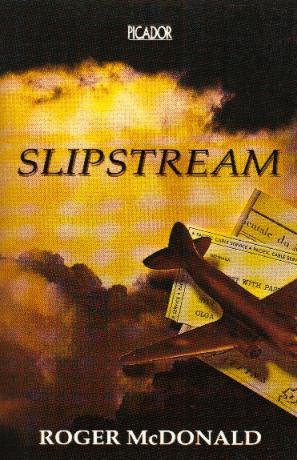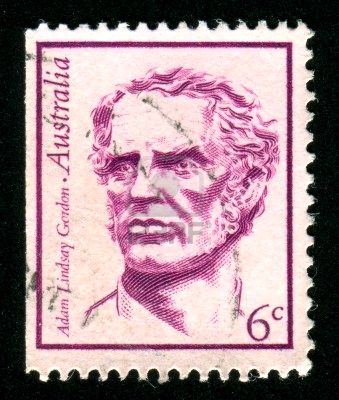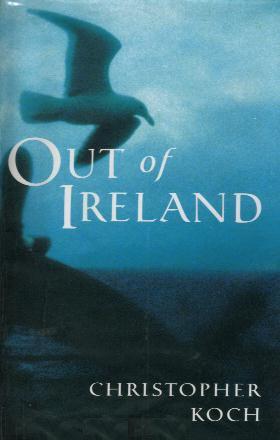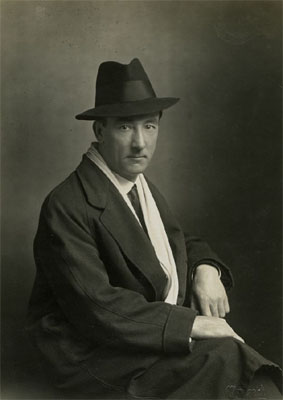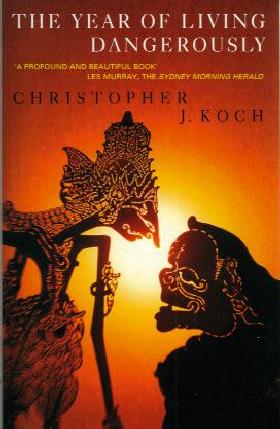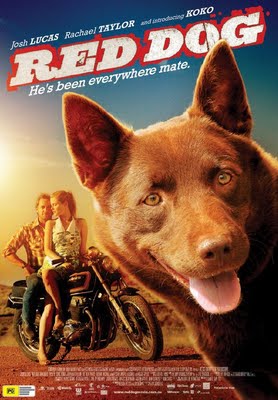In a book-lined room of a quiet Hawthorn (Melbourne) villa a tiny white-haired woman sits at her writing desk-- a woman who "never-never" forgets. She is Mrs. Aeneas Gunn, a 78-year-old author of the unforgettable Australian story, "We of the Never-Never" and the enchanting tale of Bet-Bet, "The Little Black Princess."
It is more than 40 years since she wrote of the immortal band at Elspy cattle station, in the Northern Territory:
"And all of us and many of this company shared each other's lives for one bright, sunny year, away Behind the Back of Beyond, in the Land of the Never-Never; in that land with an elusive name -- a land of dangers and hardships and privations, yet loved as few lands are loved -- a land that bewitches her people with strange spells and mysteries, until they call sweet bitter and bitter sweet."
This memorable crew, all but three have passed on -- The Maluka, The Sanguine Scot, The Head Stockman, The Dandy, The Fizzer, The Wag, Tam-o-Shanter and Cheon and many others.
Only the Quiet Stockman, Mine Host and Jeannie Gunn, the "Little Missus" of her story remain.
But when one talks to her to-day of the characters of her books they are as fresh in her star-lit memory as if it were yesterday (writes Neil Newnham in the Melbourne "Herald"').
WHEN THE FIZZER FIZZED
Remember the Fizzer? Mrs. Gunn wrote of this hard, sinewy, dauntless mailman who travelled on his "Pat Malone": "and yet at Powell's Creek no one has yet discovered whether the Fizzer comes at sundown, or the sun goes down when the Fizzer comes." (Fizzing was his term for driving mails through waterless tracts.)
Last word Mrs. Gunn had of him came only, a few years ago, although he died in April, 1911.
Says Mrs. Gunn: "The Fizzer was Henry Ventlia Peckham, of Adelaide. After losing the Katherine-to-Anthony's run when the Government accepted a lower tender than his, he was granted the Katherine-Victoria River run, and by just that we lost our Fizzer.
"For on his first return trip he reached the ford built up over Campbell's Creek to find it in flood. Sending back to the station homestead, he inquired if there were any special urgency in the small amount of mail he had. He was told that the manager's wife, farther in, was ill and that medical advice was being sought in that mail; so he drove his pack team into the ford with his black boy leading.
"The Fizzer and bis horse were swept off the ford into the raging turmoil below. To the black boy, Raven, he shouted, 'Save the mails,' and was gone. Next day his body was found, and he was buried on the high banks above the ford -- and the Government had saved its few pounds."
"The tragedy of it all was that the manager's wife had died before ever The Fizzer braved the flood," recalls Mrs. Gunn.
GRAVES OF A HOUSEHOLD
Mrs. Gunn describes the decision of A.I.F. men in the Nor thern Territory, 30 years later, to move the graves of The Fizzer and others of her bushmen to the Elsey graveyard as "a beautiful, ambition." The Fizzer was the first to be brought in.
An obelisk has also been built by tribesmen of the Territory to the memory of her characters.
Mrs. Gunn can go on "Old Elsey yarning" about the others. The Sanguine Scot (John MacLennan) remained here and there about the Territory and eventually settled peanut growing at Katherine. He died in 1932 after a distressing illness.
Dan, the head stockman (David Suttie, of Victoria), went to the Ord River station as a teamster. He died suddenly of heart failure on the road between Wyndham and Ord River, and is buried beside the road, where there was "still enough bush to bury a man in."
The Dandy (H. H. Bryant) died at Angaston, South Australia, in 1938. The Wag (Constable Kingston) left the police force to take over storekeeping, and died at Katherine in 1908.
Tam-o'-Shanter (Jock McPhee) was always curiously pleased with "Our Book", and corresponded by telegram. He perished terribly of thirst on the Willeroo - Katherine road in October, 1910.
Even the fox terrier, Robinson of the Elsey, is recalled to memory. He died after a surfeit of roast bush turkey, says Mrs. Gunn.
THE SURVIVORS
In April this year Mrs. Gunn was visited by The Quiet Stockman (Jack McLeod, 78) and Mrs. McLeod. "He named his first child Jeannie Gunn McLeod, and his two sons bear the name of Gunn.
"I think that tells of his loyal, true heart more than anything I can say," said Mrs. Gunn.
The other survivor -- Mine Host (Thomas Peace) -- is 89.
MRS. GUNN'S OWN STORY
And now, the "little missus."
Her husband, The Maluka, accustomed to rugged bushmen, described her accurately as a "little 'un". But through the 40 years since he died she has retained that vitality which makes size insignificant.
One can imagine even to-day why the woman-less community of Elsey cattle station in the Northern Territory was baulked in its attempts to stave off the Maluka's missus. Her approach to the social problems of two wars and their aftermaths is direct, sympathetic and courageous and holds the qualities which earned her the bushmen's praise-- "she's a goer, a regular goer."
SUCCESSFUL BOOKS
Why, after the success of her first two books ("We of the Never-Never" has gone to more than 300,000 copies) did Mrs. Gunn never write another? Her answer, "I have been too busy," may seem incredible to the many who do not know of her unostentatious social work -- especially for the soldiers and soldiers' sons of Monbulk in two wars.
[But Mrs. Gunn has two manuscripts in hand -- a history of Monbulk and some stories of the Victorian blacks.]
EARLY LIFE
Jeannie Taylor was born in Carlton, opposite St. Jude's Church, on June 6, 1870. What has made her the envy of her wide circle of very young friends is her confession, "I never went to school."
But her mother was a wonderful reader and teacher. She combined visits to the art gallery, where historical scenes were observed, with visits to the library, where the corresponding historical account could be read.
There were always regular "school hours", however. Mrs. Gunn remembers the great W. G. Grace, "when I was a very small person." She is an admirer of Don Bradman. "There is no greatness without simplicity," she says in a tribute to Don.
FIRST MEETING
She is contemptuous of the romantic, but erroneous, accounts of her meetings with Aeneas Gunn.
The true story:
With a Mrs. Kerr, an Irishwoman, she drove in a trap into Narre Warren for a concert. Outside the hall the horses would not stand, and young Jeannie offered to leap off over the wheel and hold them.
She stepped on the wheel, but the horses backed and spun her into the air.
As she fell a "long-legged Scotchman" detached himself from a group of people and caught her. So Jeannie met Aeneas Gunn, son of the first Gaelic preacher in Victoria, the Rev. Peter Gunn. They were married on New Year's Eve, 1901.
"Always throwing yourself at the men," chided Mrs. Kerr.
FIRST PUBLICATION
Since "We of the Never Never" captured its public, interest in the book, its characters and its authoress has never dimmed.
Before it was published in England on Christmas Eve, 1908, "We of the Never-Never" was rejected by five publishing houses. Result of the first edition -- a debit of £11.
Plates for the book were commandeered for ammunition metal in the First World War.
Mrs. Gunn has had many film offers for her story, including one of partnership in the filming company and another of £100 for film rights!
The story of harum-scarum Bet-Bet (The Little Black Princess) was written on the recommendation of a Quaker, who insisted that Mrs. Gunn tell his grandchildren fairy-tales "as long as they were true ones."
From time to time aged lubras are hailed by Territory visitors when they cunningly claim, "Me Mrs. Gunn's Bet-Bet."
Typically. Mrs. Gunn regarded her O.B.E. award in 1939 as an honour to Australian literature.
First published in The Worker, 15 November 1948
[Thanks to the National Library of Australia's newspaper digitisation project for this piece.]
